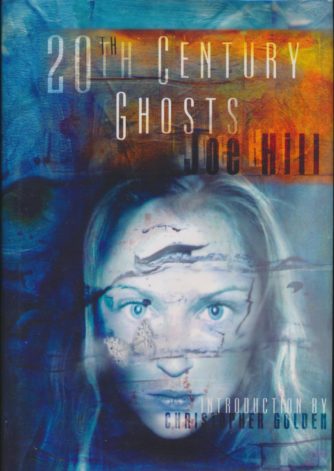 By JOE HILL (PS Publishing; 2005)
By JOE HILL (PS Publishing; 2005)
This independently published collection of stories was quite obscure, at least until it was republished by WIlliam Morrow in 2007. This review is of the original publication of this essential book, from the UK-based PS Publishing. I was alerted to it by a colleague who claimed readers were calling it one of the absolute best horror books they’d ever read, a sentiment echoed by Christopher Golden’s laudatory introduction (“I can say that if it were possible to scour from my mind the memory of having read these stories, I would happily do so, just so that I could have the pleasure of reading them again for the first time”). Do I agree? In a word, nope! I will, however, acknowledge that this is a mighty impressive debut from an assured and wholly individual voice.
This is Joe Hill’s first book, although according to the copyright page he’s been publishing stories in various obscure publications since 1999 (postscript: Hill’s debut novel HEART-SHAPED BOX appeared in early 2007). His uncommon skill and confidence are clear from the very beginning of this compilation of fourteen subdued, Bradbury-esque stories, most of them set in the nostalgic-yet-horrific world of childhood (there exists a fifteeth story, “The Saved”, that appears only in the expensive slipcased edition, which I don’t own).
The book is nothing if not well-rounded. Its contents range from a tender tale of boy’s encounter with the sad realities of death (“The Widow’s Breakfast”) to a high-spirited pastiche of fifties B-movie clichés (“You Will Hear the Locust Sing”), a ghostly romance (“20th Century Ghost”), an enchanting evocation of Marquezian magic realism (“The Cape”), and two elegant exercises in obscurantism (“Dead-Wood” and “My Father’s Mask”) that will doubtlessly please Dennis Etchison fans. Not all the stories worked for me, in particular “The Black Phone” and “Abraham’s Boys”, formulaic accounts of abused boys striking back against their respective tormentors (both conclude with pithy, Dirty Harry-esque one-liners) that are simply not up to the high standards set by the rest of the book.
There are, however, two bonafide masterpieces. “Voluntary Committal” is a novella at once wistful and dark-hued, a reminiscence of the disturbed narrator’s schizophrenic brother who was obsessed with empty boxes, from which he created labyrinthine structures in the basement of his family home. It’s a stunner, with moments of shock and real beauty, not to mention a deeply poetic finale. The transcendent “Pop Art” is even better, an absolutely breathtaking piece of surrealism about the short life of an inflatable boy. It’s funny, scary, touching and by itself worth the purchase.
